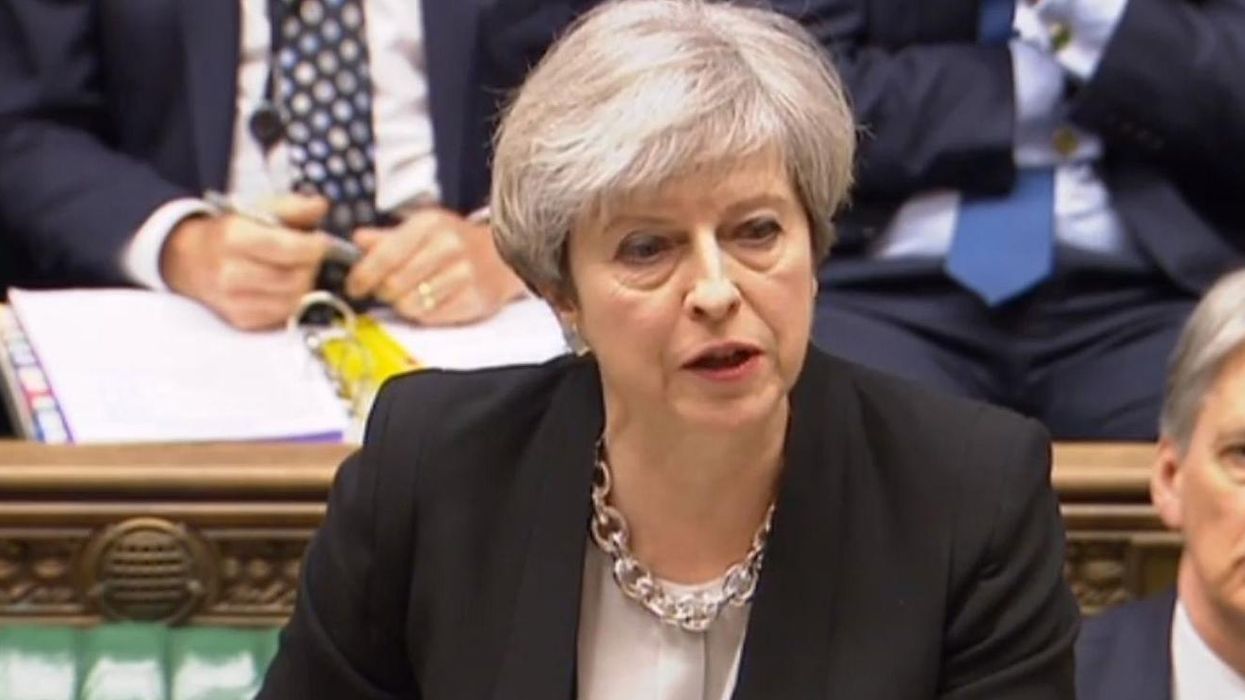Bryony Clarke
Apr 21, 2017

Picture:
PA
Theresa May has so far been reticent about the content of the Conservative manifesto for the general election which is just weeks away.
So it is worth reminding ourselves of some of the most significant Tory policies since the party came into power in 2010.
1. Benefits cap
In November last year, the Conservative government reduced the benefits cap to £23,000 for households in London, and just £20,000 for those elsewhere – less than the minimum wage.
The new cap has affected more than 100,000 households with between one and four children. The reduction in total benefits has hit some of the most vulnerable families across England, Scotland and Wales, with those affected facing a loss of income of £60 a week on average.
2. Bedroom tax
One of their most notorious policies for its sheer nastiness, in April 2013 the coalition government introduced a tax on spare bedrooms for people living in housing association properties.
Those affected experienced a cut in housing benefit if their home was deemed to have one or more spare bedrooms. All children under 10 living in these houses are now expected to share a bedroom, and children of the same gender must share up until age 16.
3. Cuts to legal aid
First introduced in 1949, legal aid has long been a principal pillar of the welfare state, a means for ordinary working people to be properly represented in court. But the 2013 Legal Aid, Sentencing and Punishment of Offenders Act (LASPO) has slashed the legal aid budget by £320m a year from 2014, and will shave off another £220m a year by 2018.
It means that if your household has an income of more than £3,000 a month, you will no longer be eligible for legal aid, on the grounds you should be able to fund your own cases. Better start saving just in case.
4. Junior doctor contracts
In April last year junior doctors were driven to stage the first all-out strike in NHS history after Health Secretary Jeremy Hunt imposed a new contract that would mean working longer hours for less pay.
Despite a petition calling for a vote of no confidence in Hunt reaching more than 300,000 signatures, Theresa May kept him on in her new Cabinet selected last July.
5. Lifting cap on university tuition fees
Never known for being a party to court the votes of students, one of the Tories’ first actions in power was to treble the university tuition fee cap from £3,000 to a whopping £9,000. For good measure, they also cancelled Labour’s Education Maintenance Allowance (EMA) for sixth form students in 2010, and later scrapped the university maintenance grant for struggling students in 2016.
6. Excluding under-21s from claiming housing benefit
In the same spirit of waging war on the young, the Conservatives plan to end housing benefit payments to those aged under 21. The cut was first announced by David Cameron in 2015, and despite homelessness charities urging Theresa May to drop the policy, in March this year the government pushed ahead with the legislation.
7. Excluding under-25s from the new Living Wage
George Osborne’s new National Living Wage, which came into effect last year, sounds great but in reality really isn’t. For a start the initial rise to £7.20 an hour still falls considerably short of what campaigners have calculated a full-time worker needs to earn to afford a decent standard of living.
And secondly, those under 25 have been excluded from the £7.20 Living Wage altogether, despite making up nearly a quarter of all minimum wage workers.
8. Grammar schools
Despite a funding crisis hitting schools up and down the country, in which every secondary faces losing at least 6 teachers due to Tory cuts, Theresa May has found £320m from somewhere to open a wave of new grammar schools. This is despite no evidence that grammars improve social mobility, close the attainment gap between rich and poor or enhance overall performance in any way.
Earlier this month, the National Union of Teachers voted to oppose any increase of grammar schools and warned of their harmful effects on disadvantaged children. May will be ploughing on regardless.
9. Disability cuts
Cuts to Personal Independence Payments (PIP) have left hundreds of thousands of disabled people without vital financial support. Nearly 200,000 have lost £3,000 a year, while another 400,000 have lost £1,400 a year.
Disability charities have described the cuts as “devastating” – arguing that vulnerable individuals will no longer have access to aid and appliances that allow them to live independently.
We could go on, but there are only so many hours in the day.
More: 13 election posters the Tories would prefer you forgot about
Top 100
The Conversation (0)
x













